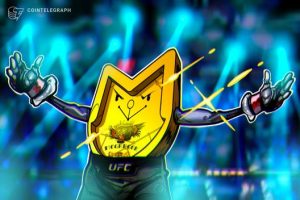
Many businesses and big brands have already jumped on the nonfungible token (NFT) bandwagon, including Nike, the National Basketball Association, Pepsi and even Taco Bell. But are these just for the show, or are these NFTs creating value? Much like digital services have become essential for every business in and outside of the technology sector, I believe that tokens — and, specifically, NFTs — are likely to become equally crucial in the emerging Web3 economy for at least two reasons.
First, my view is that NFTs tokenize ideas at the atomistic level, creating rivalry and exclusivity around goods or services. Markets cannot form when goods and services are non-rival — when one person’s consumption does not trade off with another’s — or when they are non-excludable — when it is prohibitively expensive to gate access to a good or service with a price mechanism. NFTs, on the other hand, create rivalry and exclusivity by leveraging smart contracts on the blockchain that deliver NFTs to peoples’ digital wallets when they make a purchase.
Second, I also believe that organizations can use NFTs to efficiently attract and engage different tiers of customers each in their own unique way. Whereas traditional marketing involves selling goods and services at a discount, perhaps for a limited duration of time, NFTs allow brands to target specific customers and reward those who want to engage. For instance, perhaps a fashion brand decides to airdrop discount codes or special offerings that are not available anywhere else to NFT holders. Normally, that would be prohibitively expensive to do at scale, but NFTs provide a way.
Related: Why are major global brands experimenting with NFTs in the metaverse?
Building community
To date, however, most of the NFT applications have been among bigger brands — or at least, so it seems based on media coverage. But either way, smaller organizations and even independent business owners will benefit from NFTs in the years ahead if they invest the time and energy to understand how…
..






